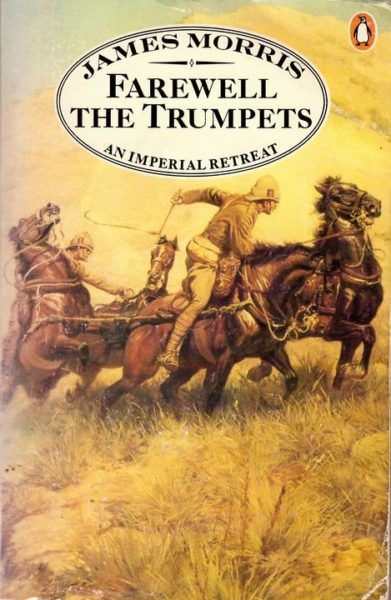By an odd co-incidence, I began reading the third volume of Morris’s British Empire trilogy just last night and today I discovered that she recently died at age 94. The particular edition I have has Morris’s original male name on the cover, but her female name in the “note about the author”:
Jan Morris, who died last week at the age of 94, may have lived one of the more various and accomplished lives on record. She was, in turn, a soldier, a newspaper correspondent with a number of scoops to her name, a fine memoirist, and a writer of books whose scope encompassed the world.
Any dutiful obituarist must also note something else which happened fifty years ago. It is likely for ever to feature in the first paragraph, if not the first line, of everything written about Morris. She was born a man, named James by her parents, and underwent what her publishers and profilers term “a change of sexual role” in 1972 – back when such a thing was a rarity and rather dangerous to accomplish.
I hope to leave that subject aside for a moment while contemplating her place in letters. By the end of her long life, Morris had become something of a national treasure and an institution. Her quixotic obsessions – a personal, mythical interpretation of the Welsh side of her family and her home in that country, and the late First Sea Lord Jackie Fisher – became the subject of stories shared by friends, editors and admirers.
She gave wise and funny interviews to the papers about savouring mussels without dignity and why whether what one is doing is kind ought, in a good world, to be the modest test applied to action.
Other profilers note her long companionship with Elizabeth (née Tuckniss) – first through marriage, then a legally-divorced close friendship, and finally a civil partnership, with the ceremony witnessed by a local couple who afterwards invited the two for tea. Elizabeth survives Jan, but a visiting journalist or two was shown the headstone which is planned for both of them. They will lie on a Welsh island they owned in the Dwyfor, a river that runs by their home. The stone reads: “Here lie two friends, at the end of one life”.
These are beautiful stories, but they should not retroactively colour in fully our impressions of Morris. Nor should a sense – repeated in some otherwise careful obituaries – that as “James”, Morris’s “written voice always sounded certain”. Whereas as Jan, her writing grew more introspective and aware of the ways that time and tide conspire to decay the facades of men as much as they do institutions and places. This was exhibited notably in her Pax Britannica trilogy, which chronicled Britain’s imperial decline.




